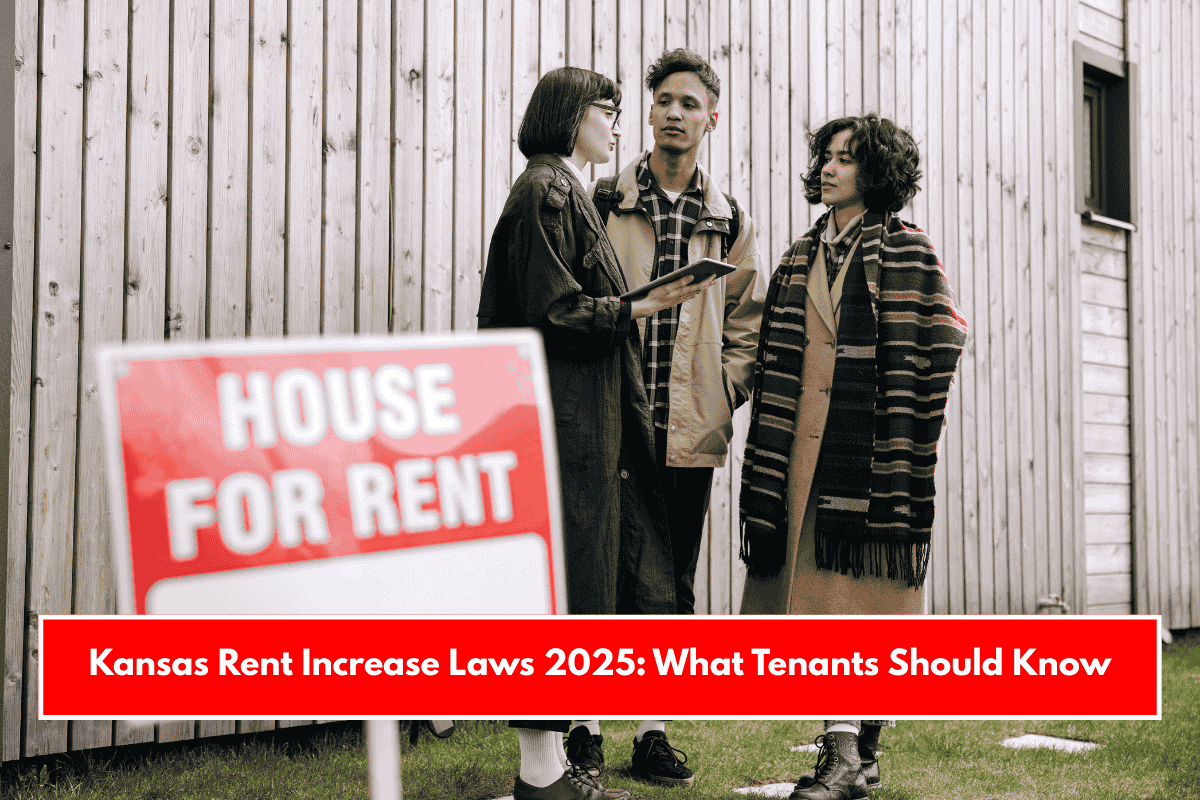Kansas remains a landlord-friendly state in 2025, with no statewide rent control or caps on how much landlords can increase rent. However, there are important notice requirements and protections against retaliatory or discriminatory rent hikes. Here’s what tenants need to know about rent increases in Kansas this year.
No Statewide Rent Control or Caps
- Kansas does not have any statewide rent control laws or regulations limiting how much a landlord can raise rent each year. Landlords can increase rent by any amount they choose, as often as they wish, provided they follow the required notice procedures and do not violate anti-discrimination or anti-retaliation statutes15.
- There are also no statutory maximum percentages or frequency limits on rent increases. Market conditions-such as local vacancy rates and comparable rents-are the main practical check on how much and how often rents are raised.
Required Notice Periods for Rent Increases
The law requires landlords to provide written notice before increasing rent. The notice period depends on the type of rental agreement:
- Month-to-Month Tenancies: Landlords must give at least 30 days’ written notice before a rent increase takes effect.
- Mobile Home Parks: The required notice is 60 days in writing before the increase becomes effective.
- Fixed-Term Leases: Rent cannot be increased during the lease term unless the lease specifically allows it. At the end of the lease, landlords can propose a new rent amount for renewal, but must provide notice as stipulated in the lease agreement.
All notices must specify the new rental amount and the effective date. Verbal notice is not sufficient-written documentation is required.
Protections Against Retaliatory and Discriminatory Increases
Kansas law prohibits landlords from increasing rent as retaliation against tenants who:
- Complain to a government agency about housing code violations.
- Complain to the landlord about lease or code violations.
- Join or organize a tenant union.
If a landlord raises rent in retaliation for these actions, the tenant may have legal remedies and defenses against eviction.
However, landlords may still increase rent if it is done in good faith to cover legitimate cost increases (such as property taxes or utility rates), provided it does not conflict with an existing lease agreement.
Federal law also prohibits rent increases that discriminate based on race, color, national origin, religion, sex, familial status, or disability under the Fair Housing Act.
How Much and How Often Can Rent Be Raised?
- There are no legal limits on the amount or frequency of rent increases in Kansas. Landlords can raise rent as much as the market allows, but excessive hikes may drive tenants to move out, leading to vacancies and turnover costs for landlords.
- Most landlords raise rent annually, typically between 3–10%, but this is not mandated by law-it is a market-driven practice.
What Tenants Should Do
- Review Your Lease: Check your lease for any clauses about rent increases or renewal terms.
- Document Notices: Keep written records of any rent increase notices and communications with your landlord.
- Know Your Rights: If you believe a rent increase is retaliatory or discriminatory, you may have legal grounds to challenge it.
- Plan Ahead: Since Kansas law allows significant flexibility for landlords, be prepared for potential rent increases, especially at lease renewal.
Kansas Rent Increase Laws 2025
| Aspect | Kansas Law (2025) |
|---|---|
| Rent Control | None statewide; no cap on amount or frequency |
| Notice (Month-to-Month) | 30 days written notice required |
| Notice (Mobile Home Parks) | 60 days written notice required |
| Notice (Fixed-Term Lease) | No increase during lease unless specified; notice as per lease agreement |
| Retaliation Protections | Rent increases for retaliation are prohibited |
| Discrimination Protections | Rent increases for discriminatory reasons are illegal under federal law |
Kansas tenants should stay informed, maintain good documentation, and seek legal advice if they suspect their rights are being violated. For more detailed guidance, consult the Kansas Tenant Handbook or a local tenant advocacy group.
Sources:
- https://www.hemlane.com/resources/kansas-rent-control-laws/
- https://www.kslegislature.gov/li/b2025_26/statute/058_000_0000_chapter/058_025_0000_article/058_025_0125_section/058_025_0125_k/
- https://american-apartment-owners-association.org/landlord-tenant-laws/kansas/
- https://www.kslegislature.gov/li/b2025_26/statute/058_000_0000_chapter/058_025_0000_article/058_025_0109_section/058_025_0109_k/
- https://www.steadily.com/blog/how-much-can-a-landlord-raise-rent-in-kansas















